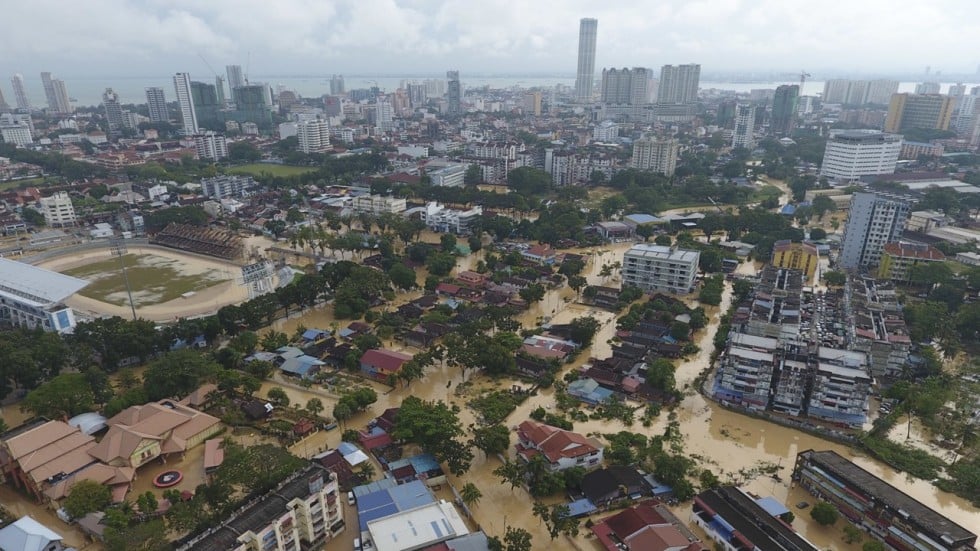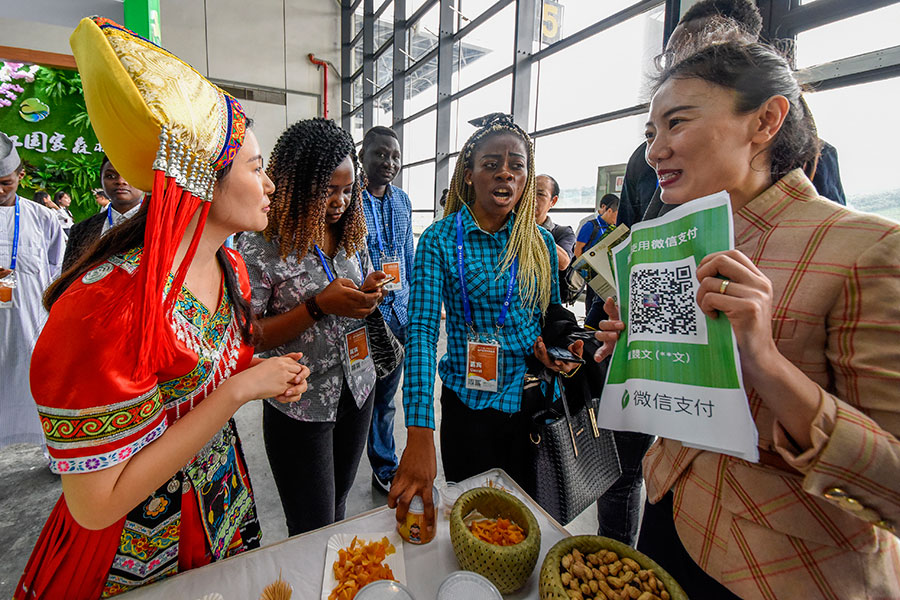https://youtu.be/R07RRPADcK0
https://www.thestar.com.my/news/nation/2019/02/14/landslide-report-blames-contractor-mbpp-and-dosh/?jwsource=cl
MBPP among four named as responsible in fatal Penang landslide
GEORGE TOWN: Four parties have been identified as being responsible for the fatal landslide at the construction site of the paired road at Jalan Bukit Kukus last October incident, including the Penang Island City Council (MBPP).
A special investigation committee set up by the Penang government following the fatal landslide at the construction site also named the other three parties, namely the contractor Yuta Maju Sdn Bhd, the consultant, Jurutera Perunding GEA (M) Sdn Bhd and the independent checking engineer G&P Professional Sdn Bhd.
Deputy Chief Minister I Datuk Ahmad Zakiyuddin Abdul Rahman, who is the committee chairman, said the MBPP as the owner of the project had failed in its overall responsibility to supervise the project despite having appointed Jurutera Perunding GEA as representative of the superintendent officer.
“By appointing Jurutera Perunding GEA, it does not mean that the council is free from responsibilities to ensure the success of the project from all aspects.
"As such, any actions to be taken against the council will depend on the outcome of investigations by the police, the Department of Occupational Safety and Heath (DOSH) and the Construction Industry Development Board (CIDB) into the incident," he said when making public findings of the investigation committee.
Ahmad Zakiyuddin said as for Yuta Maju, it had failed to ensure satisfactory mitigation works at the project site, and that the temporary slope constructed at the project site was not endorsed or designed by accredited consultants, which was a violation of the Board of Engineers Malaysia (BEM) guidelines.
“It also failed to ensure site safety by removing the empty containers at the project site, where nine bodies were recovered," he added.
As for Jurutera Perunding GEA, Ahmad Zakiyuddin said the party had failed to ensure that the contractor abide by the guidelines set out by the BEM, while G&P Professional had failed to abide by the job scope given by the council.
“Following our findings, we have recommended that the contractor, consultant and independent checking engineer be blacklisted from any tender consideration for projects in the future.
“That said, they will still have to continue their works for the paired road project, until the project completion, slated for May next year,” he added.
The landslide at the Bukit Kukus paired roads project site on Oct 19 last year killed nine site workers and left four others injured.
The search and rescue (SAR) operation was called off after five days. The project's stop-work orders, separately issued by DOSH, CIDB and the council, were lifted up recently.
Ahmad Zakiyuddin said the special investigation committee also identified 10 main factors which had contributed the to fatal landslide, particularly not fully adopting best practices in construction work.
Other factors included:
* heavy rain on the morning of the incident at 55mm
* the contractor was unable to enter the project site to carry out mitigation works as stop-work order was issued by DOSH two days prior to the incident following a worksite accident
* unsafe construction processes
* failure to recognise the significance of an earlier incident (falling beams at another part of the project site two days prior to the landslide);
* lack of supervision
* failure to identify risk due to the change of process
* lack of comprehensive inspection and testing
* failure in risk communication
* poor management of sub-contractors.
Asked on why the services of the contractor, consultant and independent checking engineer were not immediately terminated following the incident, Ahmad Zakiyuddin said from what he understood, the stop-work orders issued on the three were only for one part of the project and not the entire project.
"Also, there was no record of safety issues prior to the landslide," he said.
He called on efforts to protect the remaining part of the project as a resu
lt of a negative perception.
"Any delay will put the project at greater risks."
To another question if the special investigation committee's findings would be made public, he there had been no plans to do so as the report served as a guideline for the state. - By Audrey Dermawan, NST >
‘MBPP hired resident engineer for Bukit Kukus project’
GEORGE TOWN: The Penang Island City Council (MBPP) appointed a resident engineer and an independent checking engineer even before the start of the Bukit Kukus paired road project, says Chief Minister Chow Kon Yeow.
“If you see the action taken by MBPP, they understand their technical insufficiency in terms of a geotechnical engineer. That’s why in the contract, they required the main contractor to appoint a resident engineer, who was paid by MBPP to monitor the project on MBPP’s behalf.
“The independent checking engineers were also paid by MBPP. So, it was a measure taken by MBPP even before the start of the project, knowing that this is a big project.
“They did not have the capacity to monitor the project as they have only two or three engineers who have to be looking at other matters besides this project.
“So, they took action to appoint a resident engineer as well as independent checking enginners to act on behalf of MBPP,” he told reporters at the Penang Development Corporation Chinese New Year celebration at the PDC office in Bayan Lepas yesterday.
Chow also said the state would wait for the Department of Occupational Safety and Health (DOSH) report first.
“We will leave it to DOSH’s findings. Let DOSH come out with the report and we will take the necessary action after that,” he said.
Asked if MBPP had to bear necessary compensation for families of the victims of the landslide last October, Chow said MBPP had not received any claim so far.
Chow was asked to respond to the Consumers Association of Penang’s (CAP) call for stern action to be taken against the wrongdoers responsible for the tragedy.
CAP president S.M. Mohamed Idris in a statement yesterday said: “While we welcome the investigation committee’s findings as to who is responsible for the tragedy, we are concerned that apart from recommending the blacklisting of the contractor, consultant and independent checking engineer from any tender consideration for future projects, it appears that no further stern action has been recommended.
“In particular, we want to know what action will be taken against MBPP,” he said.
Deputy Chief Minister I Datuk Ahmad Zakiyuddin Abdul Rahman, who headed the investigation panel, was reported yesterday as saying that MBPP and other parties involved in the construction of the Jalan Bukit Kukus paired road project had not adhered to construction and engineering best practices.
Meanwhile, MBPP acknowledged responsibility for the Bukit Kukus landslide tragedy as it is the council’s project.
MBPP mayor Datuk Yew Tung Seang said the council was not pushing away any responsibility or negative comments on the council and project, and that it would be taken seriously. - By Cavina Lim and Intan Amalina Mohd Ali, The Star
Penang landslide report blames contractor, MBPP and DOSH
The special investigative panel report on the Bukit Kukus landslide had not been made public, but excerpts of the findings were made available by the state.However, it has raised more questions than answers as the state blamed the contractor, Penang Island City Council (MBPP) and the Department of Occupational Safety and Health (DOSH).
In an immediate response, DOSH Penang director Jaafar Leman denied the department was to be blamed for the landslide.
“We were not even invited to be part of the investigative panel to give our views. How could we be blamed?” he asked.
According to the statement by Deputy Chief Minister 1 Datuk Ahmad Zakiyuddin Abdul Rahman who headed the investigative panel, the stop-work order on Oct 17 prevented contractors from entering the site to do maintenance works.
As a result, the temporary toe drain overflowed and water was retained on the reclaimed land contributing to the collapse of the slopes.
“How could a stop order which was issued on Oct 17 contribute to the landslide which occurred on Oct 19?” asked Jaafar.
He said the slopes would have been risky from the beginning as the contractor did not do any mitigation works to strengthen them and it does not make sense to blame DOSH.
The stop-work order was issued on Oct 17 after 14 beams fell in a ravine.
Earlier, during a press conference, Ahmad Zakiyuddin said MBPP and other parties involved in the construction of the Jalan Bukit Kukus paired roads project, had not adhered to construction and engineering best practices.
“The landslide was caused by many factors, which included a temporary construction of a platform to place machinery which was not constructed properly. The temporary platform was created to allow heavy vehicles lift beams for the paired road project.
“MBPP, as owners of the project, had failed to ensure all the hired parties carried out their job.
“MBPP had failed to hire a professional engineer for temporary works to design and supervise the site,” he said yesterday.
Ahmad Zakiyuddin said another factor was the downpour in the morning of the day of the landslide.- The Star
Related News
Kudos to Deputy Chief Minister I Datuk Ahmad Zakiyuddin for holding the four parties accountable for the Bukit Kukus landslide
tragedy. The inquiry still begs a lot of questions, e.g. why was the
contract given to Yuta Maju from Terengganu? Could the accident have
been prevented if a proper EIA was done? It is not just a "bureaucratic
hurdle" but supposed to identify risks and advise mitigation. If the
authorities wish to go on with the project, it is not too late to
commissi...
See more
See more
“This is no simple incident as nine deaths resulted from it. Very stern action must be taken against the MBPP, and that includes strong disciplinary action against the mayor and officers responsible.
“Otherwise, it will be business-as-usual in the MBPP as the officers will be allowed to go scot-free with impunity.
Tragedy happened due to lack of worksite safety, says CM
Bukit Kukus road project illegal, says consumer group | Free Malaysia ..
Penang blacklists contractor, engineers in Bukit Kukus road project ...
Groups demand Penang govt release Bukit Kukus landslide probe ...
Bukit Kukus project to proceed with extra caution - Nation
Related Posts:
Action taken over irregularities at Bukit Kukus paired road project Penang
Soil erosion mitigation plans ignored, waters from stream identified as main cause !
Penang Landslide occured days after remedial works started
Penang landslides & flooding are natural disasters man-made?

Hills, landslides, floods and damaged houses: What to do?
Penang floods and landslides, looking beyound natural causes!

Penang floods, support pours in for dialogue
Call for action on flooding solution
Structural defects to blame, stop history repeating itself !
Fake Awards Scam for Penang Island City Council, Seberang Perai Municipal Council !
Dubious honours: (Above) Former Penang Island City Council mayor
Patahiyah Ismail with the trophy and certificate for Best Municipal
Manager awards in 2013 while her Seberang Prai counterpart Maimunah
(pictured here with the Chief Minister Lim Guan Eng and his aide Wong
Hon Wai) received the same latter award in 2014






























